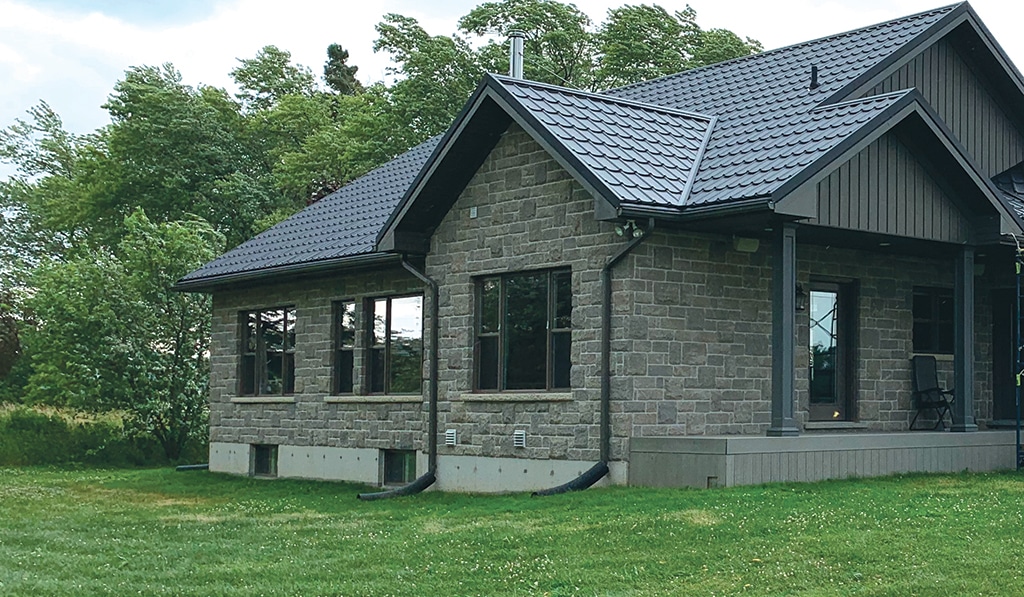Reduce, Recycle, Reflect: The Environmental Benefits of Metal Roofing

If you’re looking for an eco-friendly option for your home, Mastershake’s metal roofing system is a popular choice to reduce your impact on the environment while enjoying a host of practical benefits. This article delves into the environmental benefits of metal roofing and why it’s considered a sustainable choice.
1. Longevity and Reduced Waste
One of the most significant environmental advantages of metal roofing is its exceptional longevity. Unlike traditional asphalt shingle roofs that typically need replacement every 15-20 years, metal roofs can last 50 years or more with proper maintenance. This extended lifespan significantly reduces the amount of roofing material that ends up in landfills over time.
With traditional roofing materials, replacement projects generate a substantial volume of waste, including old shingles and underlayment. In contrast, metal roofing’s durability means fewer new roofs, resulting in less waste.
2. Recyclability
Traditional asphalt shingles are petroleum-based and thus increase dependency on fossil fuels.
On the other hand, metal roofs are highly recyclable. Mastershake roofs are not only 100 percent recyclable; they are comprised of up to 95 percent recycled materials, making them even more environmentally friendly. At the end of their life cycle, metal roofing materials can be recycled into new products, reducing the demand for raw materials and the energy required for their production.
3. Energy Efficiency
Metal roofing can contribute to improved energy efficiency in your home. Cool metal roofing, designed to reflect more sunlight and absorb less heat, helps keep your home cooler during hot weather. This can reduce your reliance on air conditioning, leading to lower energy consumption and reduced greenhouse gas emissions. In colder climates, metal roofs can also help retain heat, further enhancing energy efficiency.
4. Reduced Carbon Footprint
The production of metal roofing materials typically involves lower energy consumption and emissions compared to other roofing materials. Metal roofs often have a lighter environmental footprint due to their long life, recyclability and energy-efficient properties. Choosing metal roofing can help reduce your home’s overall carbon footprint.
5. Rainwater Harvesting
Metal roofs are an ideal surface for rainwater harvesting systems. Collecting rainwater can reduce your dependence on municipal water supplies and promote sustainable water usage. The smooth, clean surface of metal roofing minimizes contaminants in harvested rainwater, making it suitable for various non-potable uses, such as irrigation or flushing toilets.
6. Cool Roof Technology
Cool roof technology has gained popularity in recent years as a way to reduce urban heat islands and lower energy consumption. Many metal roofing options meet cool roof standards by reflecting more sunlight and absorbing less heat. By installing a cool metal roof, you can contribute to a more comfortable and sustainable urban environment.
7. Solar Compatibility
Metal roofs are often a compatible choice for solar panel installations. Solar panels can be easily mounted on metal roofing systems, taking advantage of the roof’s durability and longevity to maximize the return on your solar investment. By generating clean, renewable energy, you can further reduce your home’s carbon footprint and energy bills.
8. Reduced Heat Island Effect
Urban areas often suffer from the heat island effect, where buildings and paved surfaces absorb and radiate heat, increasing temperatures in the surrounding area. Metal roofing’s reflective properties can help mitigate this effect by reducing heat absorption and lowering the overall temperature of your home and its surroundings.
9. Low Maintenance Requirements
Metal roofs require minimal maintenance compared to other roofing materials. Their longevity and resistance to weathering mean fewer repairs and less need for replacement materials over time. This reduced maintenance contributes to a lower environmental impact by conserving resources and reducing waste.
In conclusion, metal roofing offers numerous environmental benefits, making it a sustainable and eco-friendly choice. From its exceptional longevity and recyclability to its energy-efficient properties and potential for rainwater harvesting and solar panel installation, metal roofing helps reduce your home’s environmental footprint while providing long-lasting protection.
A metal roof is not only an investment in the longevity and durability of your home, it’s also a step toward a more sustainable future. To make an eco-conscious decision for your next roofing project, contact Mastershake today.

